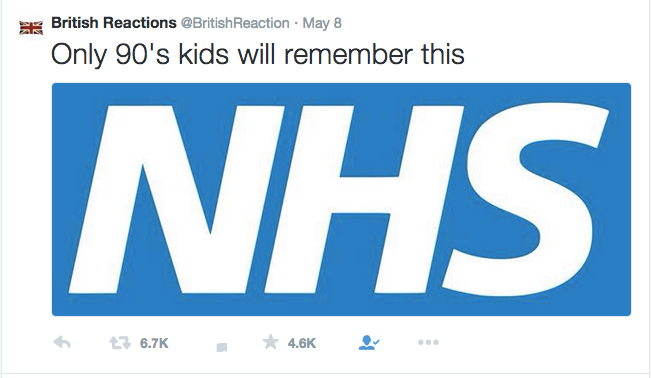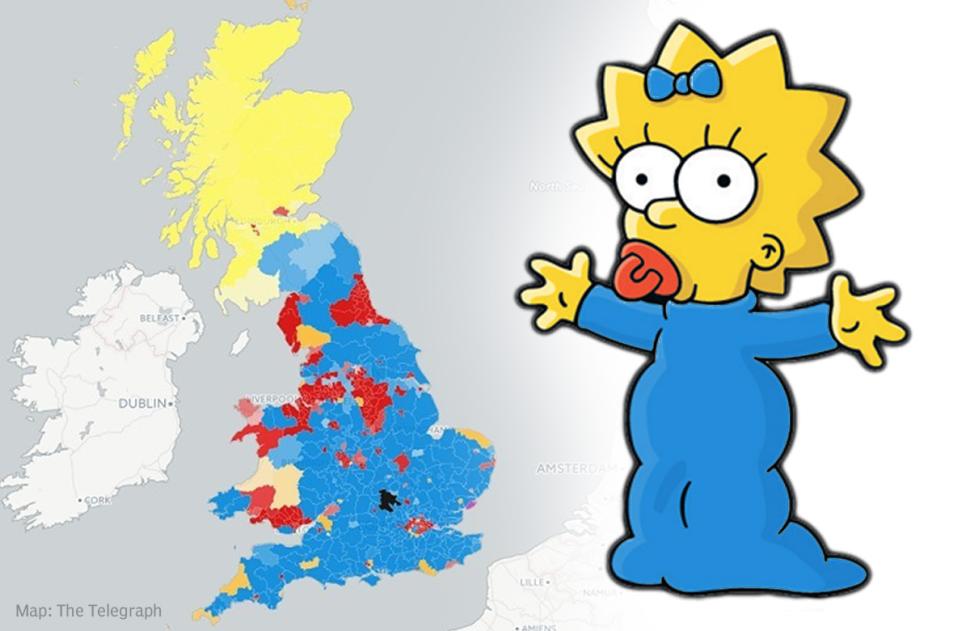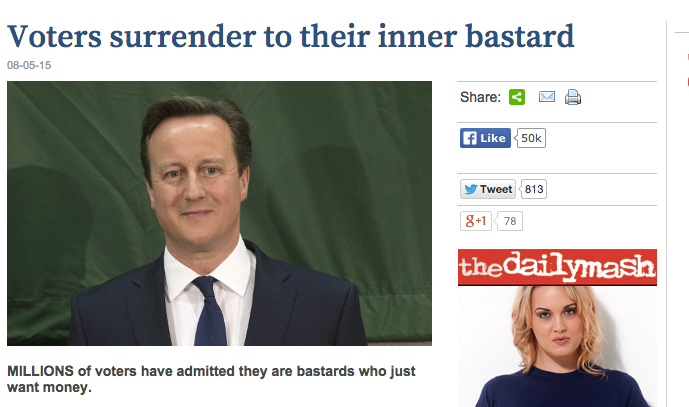“Oh my God, Britain! What have you done?” was one of the first posts I read on my Facebook feed as I woke up on Friday morning in Toronto. I was checking in to see the results of Thursday’s general election in the United Kingdom. As I read a bunch of lefty friends’ horrified posts, predicting another five years of cuts to public services and a few half-serious vows to leave the country, I actually shed a few tears. I was eating my breakfast when David Cameron’s first address to the public as reinstated Prime Minister came on.
I have barely lived in the United Kingdom since David Cameron came to power. I don’t know if this was my subconscious intention or not. Over the past five years, friends, family and the media have talked about the country going to the dogs and I have been grateful not to be there. Not particularly well-informed about the minutiae of policies enacted and bills passed, I mainly noticed the Tory ‘highlights’ of the past five years: kettling in the student and anti-cuts protests, riots against police brutality in 2011, increased privatization of the National Health Service, and the 2014 Scottish Referendum.
I’ve been of voting age in a few elections, and voted Green in most of them. I remember the heady hope of 1997 when Tony Blair was elected Prime Minister. Friends talked about the canvassing they had done for Labour in election, and I remember the gradual broken-heartedness as Blair introduced university tuition fees and sided with George W. Bush post 9/11, aligning our government with that of the U.S.

Having been born to a rich upper-middle-class Thatcherite father and an apathetic but more left-wing mother, a Conservative government was seen as something that served my middle-class community. And it probably does. A reduction in inheritance tax serves me and my brother well. Having never claimed unemployment or housing benefits, I don’t feel their £12 billion loss.
I graduated from university having paid a measly £1,200 in tuition for each year. (I then moved to Canada for my graduate degree where — shock horror Canadians — funding for my graduate degrees is far more available.) Friends only five years older than me had benefitted from no tuition fees, local government living cost grants and private loans. I received £3,000 a year in student loans, which I then had to pay back with a high rate of interest once I started earning over £13,000 a year. Tuition fees now average £9,000 a year, which leaves most graduates with a debt of £30,000 in fees alone.
So, like the government currently in power, I benefitted from low tuition (free to Cameron’s generation) and could quite happily leave the next generation to screw themselves. I mean, my children are going to be Canadian, after all.
In spite of all this, however, I still woke up crying on Friday morning.

I don’t really understand why Cameron was voted in with such a high majority — the Conservative party gained 35 seats, almost unheard of in a governing party. Friends and family have pointed to a deep-ingrained class consciousness, that causes British voters to vote against policies that favour their own interests, and a strange belief that Conservative policies help bolster the economy.
In an ideological comparison that aligns the U.K.’s 2015 general election with the reelection of George W. Bush in 2004, the Financial Times (itself a right-wing paper) argues that fear itself gets conservative parties voted into power. My own mother, a staunch Liberal Democrat, voted Conversative in order to stop UKIP gaining power in her constituency. A fear of a Scottish National Party/Labour coalition might also be the reason Labour lost 48 seats.
But never mind the rationale behind the votes placed, or debates about the fairness of the British voting system, the U.K. now has a Conservative majority government for the first time in almost 20 years. I fear what the next five years will bring.



